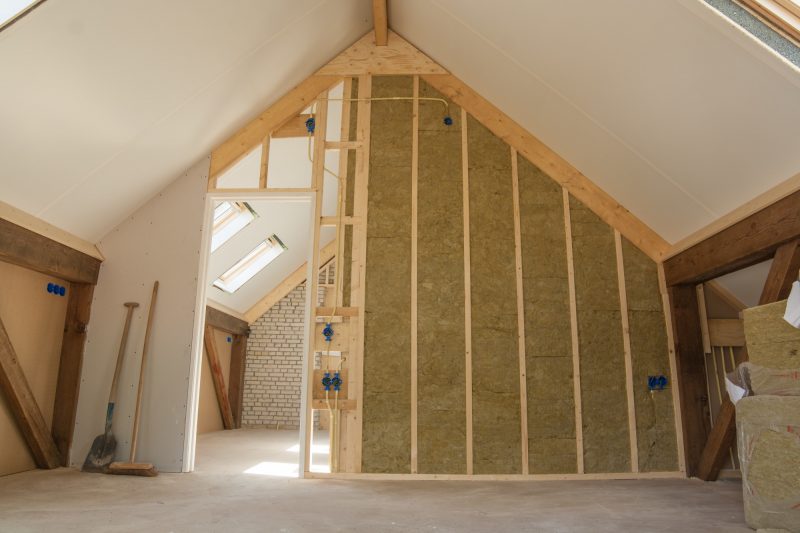Most people either hate or love home renovations. While they improve your home’s current condition, they can often be pricey. However, installing home insulation can benefit your life in many ways.
Insulating your home can mean sealing your attic off from the rest of your house and fixing any draft windows. The tops and bottoms of your doors could also be leaking air outside your home.
Home insulation is one of the best home upgrades you could invest your money in, and here are seven reasons why.
Table of Contents
1. Maintain a Comfortable Temperature
One of the top reasons why your air conditioning unit struggles to cool or heat your home is because of a lack of insulation.
When your house isn’t properly insulated, cool air doesn’t circulate as well. Hot air could get in through doorways and windows, and cold air can penetrate your walls more easily.
As most people know, you don’t keep a window or door open while your AC is on. It won’t work, and you’ll just waste money. Ignoring proper home insulation is like keeping a door or window slightly open at all times.
2. Less HVAC Strain
When your HVAC system isn’t cooling or heating your home efficiently, then it has to work twice as hard to achieve the intended results. If you leave it on auto during the day in a building without insulation, it could end up running the entire time. Needless to say, you’ll definitely notice it at the end of the month when you get your energy bill.
Since it’s working harder for longer, your HVAC system will also encounter wear and tear sooner than it should. Repair costs for your system will run you at least $80 an hour.
However, a routine maintenance service provider should suggest you put in new insulation if you need it.
3. Better Air Quality
Another of the many benefits of insulation is improving your home’s air quality. You may wonder how exactly sealing off the inside of your house can actually make the air better.
If you live in the countryside and have seasonal allergies, you don’t want those allergens creeping inside throughout the day. Those who live in the city also want to keep the smoke and sound outside.
Likewise, an attic that hasn’t been insulated can let air pollutants into your air ducts, which then circulate dust and debris throughout your home. If you’re installing a loft space, you’ll also need legs, ledges, and more to avoid damaging the insulation.
Look here for more information on the types of products available.
4. Save Money
While home upgrades always cost quite a bit at first, they’re almost always worth it later on. Home insulation is no exception, and its effects are felt more immediately.
First, insulation helps your home maintain a comfortable temperature. Your AC won’t have to struggle all day long, so it’ll use less energy. Homes can actually use around 25% more energy if they aren’t properly insulated.
In addition, an HVAC system that isn’t getting overworked lasts longer and requires fewer repairs. On a similar note, insulation can help keep out airborne allergens, so you may get sick less often and won’t need as much medication.
5. Reduced Sound Leaks
One of the lesser-known benefits of home insulation is reducing sound leaks throughout your house. A sound leak refers to noise from inside or outside your house penetrating your walls. If your house isn’t insulated, you can probably hear every little thing that happens outside.
These sound leaks can come from doorways, through windows, and even from your ceiling. Insulation is one of the ways you can help reduce your exposure to excess sound. It helps absorb sounds that would otherwise bounce off your walls and floors.
Some other smaller upgrades you can make include installing weather strips and securing gaskets around your home’s interior.
6. Good For the Environment
A “green” lifestyle can mean different things for your home. Installing solar panels can reduce the energy you use from the power grid, and composting your food waste means less going into landfills.
Home insulation is another way to reduce your carbon footprint. The right kind of insulation lets you use even less energy since your HVAC system won’t have to work as hard.
One thing to stay aware of is the type of insulation you use.
The worst insulation material for the environment is extruded polystyrene, which has a high global warming potential. Insulation materials like fiberglass, mineral wool, and cellulose are much safer alternatives.
7. Increased Home Value
Like any other home upgrade, installing home insulation can result in an increased home value. That means when you eventually sell, you can earn back any money you invested in your home.
A building’s R-value in insulation lets you know how much heat is let in and out. A higher value coincides with thicker and better insulation.
Your home’s R-value is important for calculating its overall value, so installing or improving your insulation influences it.
Another way it improves your resale value is lowered utility bills. New homeowners can also skip out on the installation process by purchasing a place with it pre-installed.
Save Money With Home Insulation
Installing home insulation for the first time could be a big endeavor, but the benefits are worthwhile.
Not only will you improve your HVAC system’s cooling capabilities, but it can help fend off the winter chills. Block out excess noise from other rooms or outside your house. You’ll also get increased home value.
If you’re interested in installing new insulation, reach out to a local contractor to hear their offers. For more info on construction and engineering, check out our other articles.






